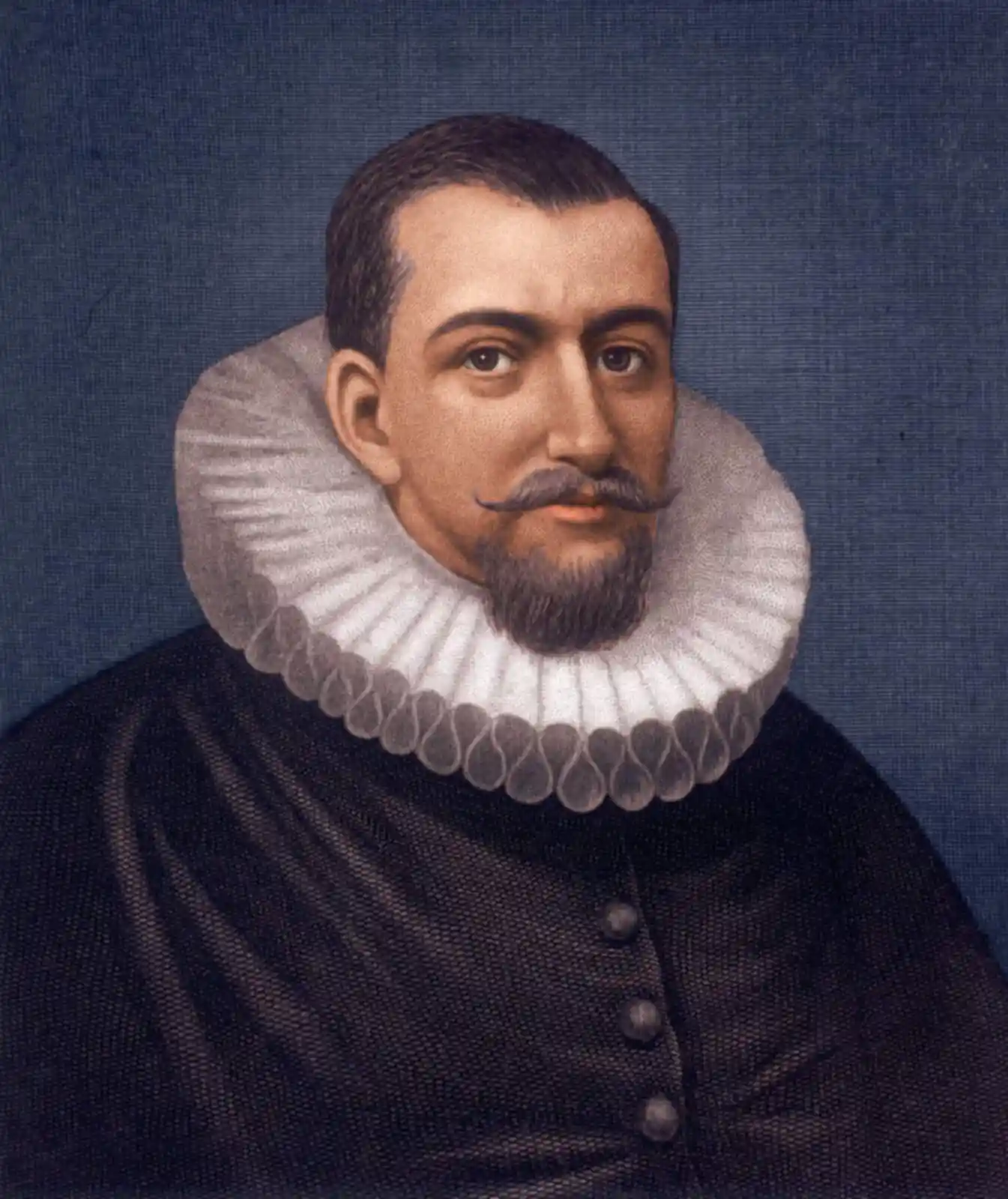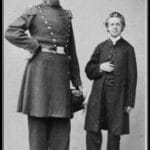Henry Hudson, a name whispered with reverence and tinged with mystery, continues to fascinate historians and adventurers alike. Though much of his life remains shrouded in obscurity, his daring voyages and their profound impact on our world are undeniable. Here are 10 captivating facts about Henry Hudson, offering a glimpse into the life and legacy of this enigmatic explorer:
10 Interesting Facts About Henry Hudson
- Henry Hudson’s early life is a complete enigma. We don’t even know when or where he was born! This lack of personal history only adds to the intrigue surrounding his incredible voyages.
- This explorer was obsessed with finding the fabled Northwest Passage to Asia – a shortcut that, if found, promised untold riches and global dominance. This obsession fueled his life’s work, leading him on daring expeditions across treacherous seas.
- Hudson wasn’t tied down to just one boss. He undertook four major expeditions, each financed by different groups, including both English and Dutch trading companies. Talk about being an explorer for hire! This highlights the fierce competition between European powers for control of trade routes during this period.
- While searching for that elusive passage in 1609, he stumbled upon a magnificent river. Today, we know it as the Hudson River, a major waterway named in his honor. It wasn’t the shortcut to Asia he craved, but his exploration led to the Dutch establishing settlements in the region, forever altering the course of history. Delve deeper into the enigmatic figure of Henry Hudson by exploring where he was born, a captivating aspect that adds to his rich tapestry of achievements.
- Hudson’s final voyage in 1610 unveiled another massive body of water: Hudson Bay. This huge bay, also named after him, dramatically expanded the known map of North America and opened up new possibilities for trade and exploration.
- Sadly, this last adventure took a dark turn. A mutiny erupted, leaving Hudson and a few loyal crew members stranded on a small boat in the vast expanse of the bay. Their fate remains a haunting mystery to this day, a stark reminder of the risks and sacrifices inherent in exploration during this era.
- Though his life ended tragically, Hudson’s name lives on across the map! The Hudson River, Hudson Bay, Hudson Strait, and even the Henry Hudson Bridge in New York City are testaments to his enduring legacy as an explorer.
- Hudson’s exploration of the river that now bears his name wasn’t just about maps. It laid the groundwork for Dutch settlements in the region, leading to the establishment of New Netherland. Eventually, this colony would transform into the bustling metropolis we now know as New York City.
- While he never found that elusive shortcut to Asia, Hudson’s discoveries indirectly impacted global trade routes. His voyages fueled the booming fur trade and opened up new avenues for commerce between Europe and the New World, contributing to the complex web of global trade that exists today.
- Even though his journey ended in tragedy, Henry Hudson remains an enduring symbol of ambition and relentless curiosity. He reminds us that there’s always something new to discover, even if the path is uncertain and the destination unknown. His unwavering pursuit of the Northwest Passage embodies the spirit of the Age of Exploration, a time of great risk, discovery, and the expansion of human knowledge.
What Drove Hudson – The Mystery of the Northwest Passage?
The promise of a shortcut – that’s what kept Henry Hudson sailing into the unknown. He wasn’t looking for gold or glory, but for the fabled Northwest Passage – a sea route through North America that could shave weeks, even months, off the perilous journey to Asia. Just imagine the riches such a route could bring back – silks, spices, treasures beyond imagination! This wasn’t just about getting rich, though. It was about opening up the world, connecting continents in ways nobody had ever dreamed possible.
The Northwest Passage represented more than just a geographical shortcut. It was a symbol of potential wealth and power, a prize sought after by kings, merchants, and explorers alike. Whoever controlled this route controlled the flow of goods between East and West, and with it came immense wealth and influence. This potential to reshape global trade and power dynamics fueled intense competition between European nations, each eager to claim the Passage for themselves.
But for every ambitious merchant, there was a wide-eyed dreamer, a mapmaker captivated by blank spaces, an adventurer yearning for the unknown. They say Hudson was one of these, a man driven by curiosity as much as by ambition. He wanted to chart new territories, plant his flag in undiscovered lands, and maybe even find something truly extraordinary along the way.
Sadly, the Northwest Passage remained just out of reach. Despite four daring voyages, braving treacherous waters and unforgiving ice, the elusive shortcut remained hidden. This relentless pursuit, however, resulted in some of the most significant discoveries in North American exploration. He mapped vast stretches of the New World, leaving his name etched on maps forever – the Hudson River, Hudson Bay, enduring reminders of his insatiable curiosity and relentless pursuit.
Tragically, his final journey ended in mutiny. Stranded in the icy grip of Hudson Bay, his crew, desperate and disillusioned, turned against him. The details are shrouded in mystery, but what we do know is that Hudson, his son, and a handful of loyal men were set adrift in a small boat, swallowed by the vastness of the bay, never to be seen again. Their disappearance only adds to the mystique of this legendary explorer, a reminder that some mysteries are not meant to be solved.
Unveiling the Map- What Did Henry Hudson Discover?
While the Northwest Passage eluded him, Henry Hudson’s voyages were far from fruitless. His relentless pursuit of this maritime shortcut led to significant discoveries that forever changed our understanding of the world’s geography. Let’s chart a course through some of his most notable findings:
On his third voyage in 1609, while searching for the elusive passage, Hudson encountered a vast and promising river that flowed southward. Believing he’d finally found the western waterway to Asia, he sailed upriver, only to be disappointed when it became clear this was not the passage he sought. However, this “wrong turn” proved to be a pivotal moment in history. The river, now known as the Hudson River, became a gateway for Dutch exploration and settlement, paving the way for the establishment of New Netherland and its prominent city, New Amsterdam, later renamed New York City.
During his final voyage in 1610, Hudson made another significant discovery. This time, he encountered a massive body of water that dwarfed anything he’d seen before. This vast inland sea, now known as Hudson Bay, dramatically expanded the known map of North America. While this discovery initially fueled hopes of finding the Northwest Passage, it ultimately led to disappointment, culminating in the mutiny that claimed Hudson’s life.
Despite the tragic end to his final expedition, Hudson’s discoveries had a profound impact on our understanding of North America’s geography. The Hudson River and Hudson Bay remain enduring testaments to his legacy, forever linking his name to the landscapes he meticulously mapped.
The Hudson River and Beyond- Lasting Impacts of Hudson’s Explorations
Henry Hudson may not have achieved his ultimate goal of finding a navigable shortcut to Asia, but his voyages were far from failures. His unwavering pursuit of the Northwest Passage resulted in invaluable contributions to geographical knowledge, paving the way for future exploration, trade, and colonization.
His meticulous mapping of the North American coastline provided Europeans with a more accurate understanding of the continent’s geography. This newfound knowledge had far-reaching consequences, shaping the course of future exploration, trade, and colonization.
Hudson’s discovery of the Hudson River, in particular, had a profound impact on the development of North America. The Dutch, recognizing the river’s strategic importance for trade and settlement, established a colony in the region, eventually founding New Amsterdam, the precursor to modern-day New York City. This marked the beginning of European presence in the area and led to significant cultural and economic exchange between the Old and New Worlds.
The lasting legacy of Henry Hudson lies not only in the geographical features that bear his name but also in the spirit of exploration he embodied. His unwavering determination, courage, and thirst for discovery continue to inspire generations of explorers, reminding us that the pursuit of knowledge and the unknown can lead to unforeseen discoveries and shape the course of history.
- China II Review: Delicious Food & Speedy Service - April 17, 2025
- Understand Virginia’s Flag: History & Debate - April 17, 2025
- Explore Long Island’s Map: Unique Regions & Insights - April 17, 2025

















Comments are closed.